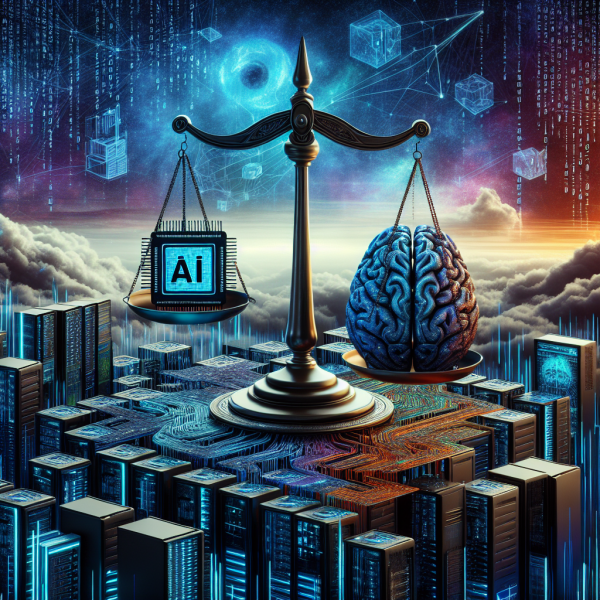AI Accountability: Who’s Responsible When Algorithms Go Awry?

In recent years, the rapid development and deployment of artificial intelligence (AI) technologies have outpaced our understanding of their implications. From self-driving cars to algorithmic trading, AI permeates various sectors, promising unprecedented efficiency and innovation. However, with this promise comes a myriad of ethical dilemmas and accountability questions. Who is responsible when algorithms malfunction or produce harmful outcomes? This article explores the landscape of AI accountability and the challenges we face in establishing a framework for responsibility.
The Complexity of Algorithmic Decision-Making
AI algorithms, particularly those driven by machine learning, are often opaque. They analyze vast datasets and identify patterns in a way that can be difficult to interpret, even for their creators. This lack of transparency raises ethical concerns, especially when decisions made by AI have profound effects on people’s lives—whether in healthcare, criminal justice, or employment.
For instance, facial recognition technology has been criticized for racial and gender biases, leading to wrongful arrests and discrimination. In such cases, it becomes crucial to determine who is accountable: the software developers who created the algorithm, the companies that deployed it, or the institutions that relied on it.
The Role of Developers and Companies
The developers behind AI systems are undoubtedly responsible for creating algorithms that are as fair and unbiased as possible. Ethical considerations must be integrated into the design and training processes. This is not merely a question of technological capability; it requires a commitment to a set of values that prioritize social good.
Companies that deploy AI technologies share the responsibility to ensure that their products are safe and ethical. This responsibility includes implementing rigorous testing procedures, maintaining transparency with users, and remaining accountable for the consequences of their algorithms. The challenge lies in encouraging a culture of accountability within organizations, where the implications of AI deployments are taken as seriously as financial profitability.
Regulatory Frameworks and Legal Accountability
As AI continues to evolve, the need for regulatory frameworks becomes increasingly evident. Governments around the world are beginning to explore new regulations for AI technologies. The European Union, for instance, has proposed the Artificial Intelligence Act, aiming to categorize AI applications based on their risk levels and impose corresponding obligations.
However, creating effective regulations is challenging. They must not stifle innovation while still ensuring that accountability mechanisms are in place. Defining legal liability—whether it falls on developers, companies, or even users—requires careful consideration. A future of widespread AI deployment raises unique questions about collective versus individual responsibility.
Ethical Implications: Who Suffers the Consequences?
When AI algorithms go awry, the ramifications are often borne by vulnerable populations—those who have little power to contest the automated decisions affecting their lives. This raises ethical questions about justice and equity. If an autonomous vehicle strikes a pedestrian, how do we weigh the accountability of the car manufacturer, the software developers, and the policymakers who approved the technology?
The principle of “techno-ethics” emphasizes the importance of prioritizing human welfare above technological advancement. Stakeholders must assess the ethical implications of their AI systems and consider how decisions can disproportionately impact marginalized communities.
Stakeholder Involvement and Public Discourse
To tackle the challenges of AI accountability, a collaborative approach is necessary. Involving various stakeholders—including ethicists, technologists, policymakers, and the public—in discussions and decision-making processes will lead to more robust governance.
Public discourse also plays a vital role in shaping AI accountability. Educating society about AI technologies can foster informed discussions and allow citizens to participate in dialogues about the ethical implications of these systems. Additionally, transparency in AI processes encourages trust and accountability.
Conclusion: The Path Ahead
As AI technologies continue to integrate into daily life, the question of accountability remains paramount. The stakes are high—ranging from personal safety to societal equity. Establishing a comprehensive framework for AI accountability requires a multi-faceted approach involving developers, companies, regulators, and society as a whole.
Addressing these challenges is not merely a regulatory or technical issue; it is a moral imperative. As we stand on the cusp of an AI-driven future, the responsibility to ensure that these technologies serve the common good rests on all of us. Balancing innovation with ethical responsibility will pave the way for a future where AI supports human potential rather than undermines it.
By confronting these questions head-on, we can harness the power of AI responsibly and equitably, ensuring that when algorithms go awry, we are prepared to act justly and transparently.














